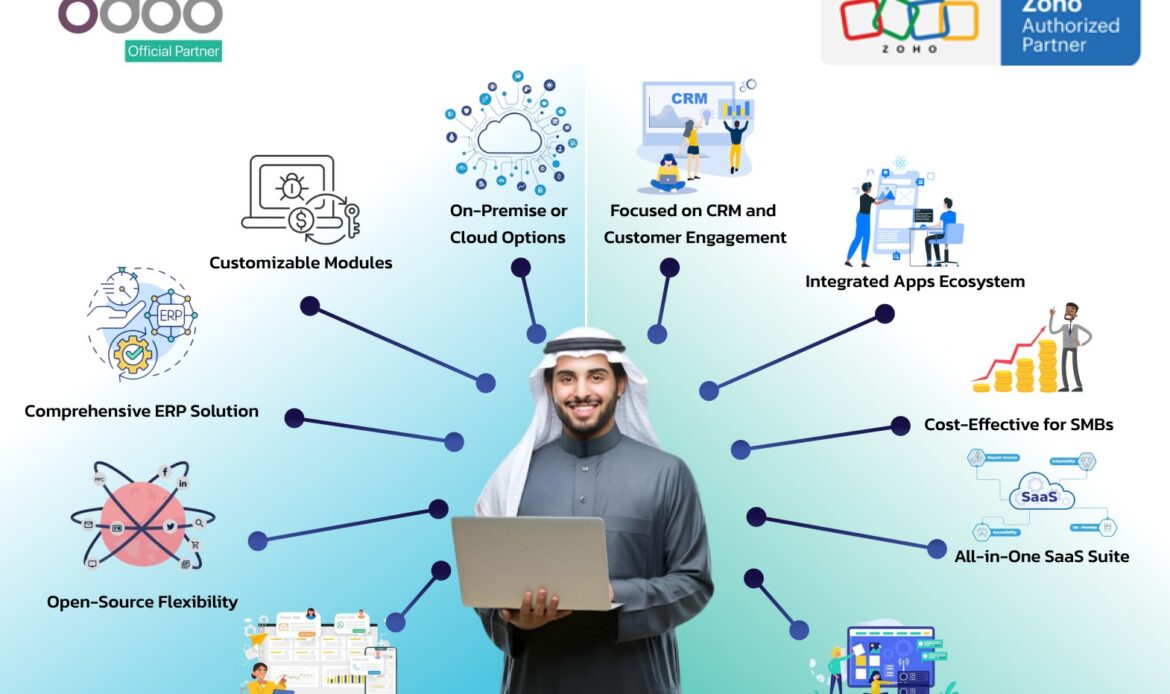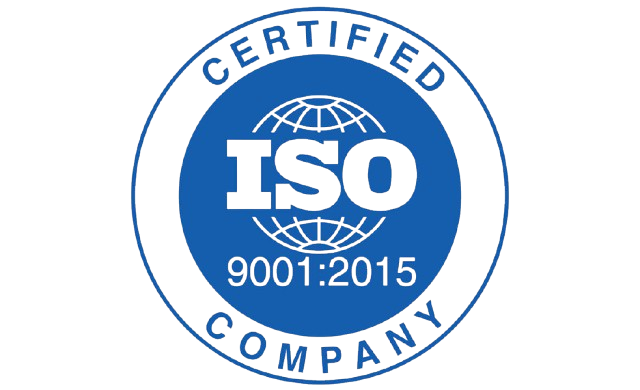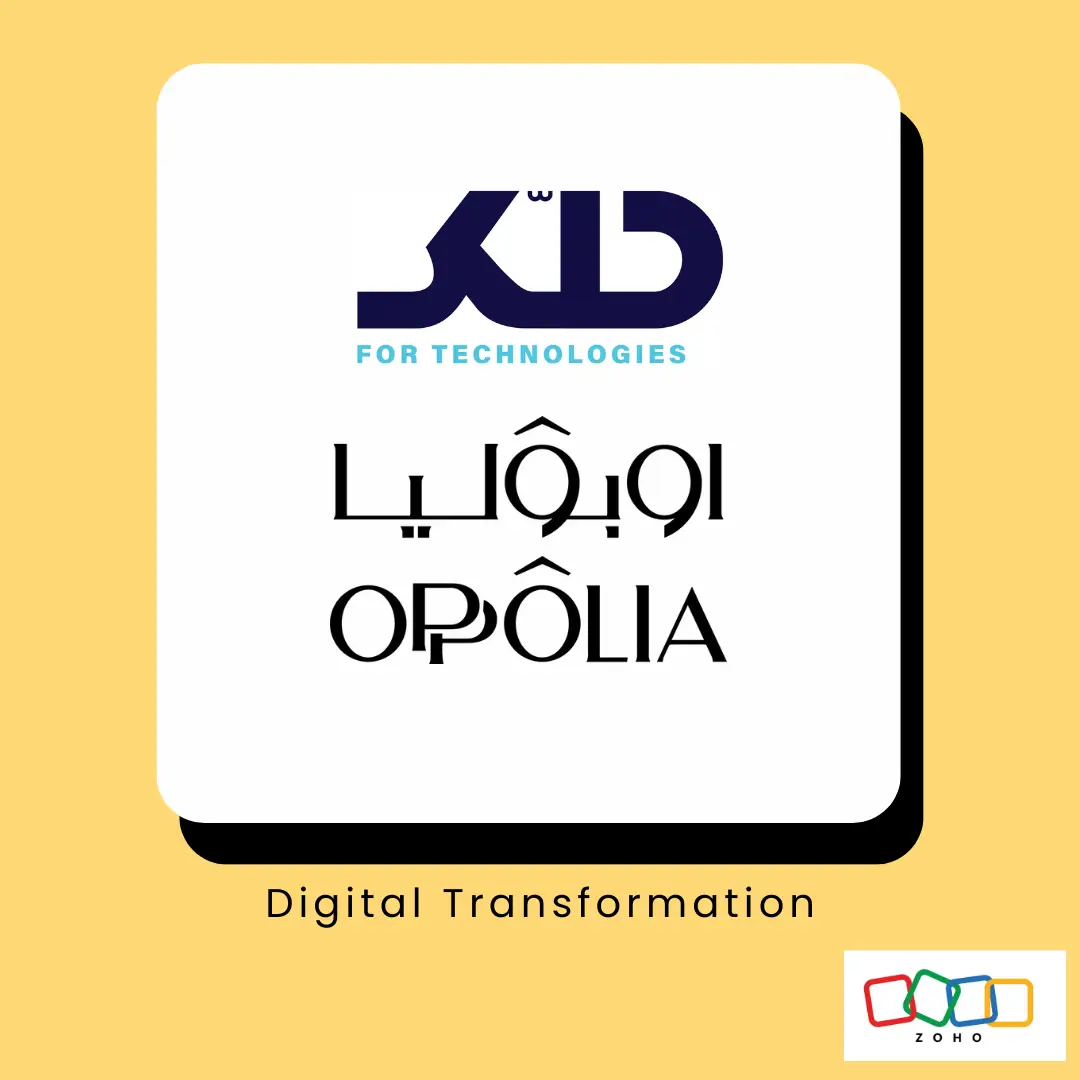1) Introduction to Both
In business management software, Odoo and Zoho are two widely used platforms, each catering to different business needs.
Odoo is an open-source ERP system, highly customizable and modular, making it perfect for businesses with complex operations that require tailored solutions and room to scale.
Zoho, on the other hand, offers a cloud-based suite of applications, including tools for CRM, f inance (Zoho Books accounting software), and HR (Zoho People HR software). Zoho focuses on ease of use and fast implementation, which is ideal for small- to medium-sized businesses seeking an out-of-the-box solution.
2) System Overview
Odoo:
Odoo is a modular ERP system, that allows businesses to pick only the apps they need. It includes over 30 modules covering various functions such as accounting, HR, inventory, and manufacturing. Its open-source design supports deep customization, making it a scalable solution that adapts to your business’s evolving needs.
Zoho:
Zoho offers over 45 integrated cloud-based applications. These include Zoho CRM software for customer relationship management, Zoho Books for finance, and Zoho People for HR management solutions. Its SaaS-based, cloud-first approach allows businesses to simplify operations and access all functions from anywhere, making it perfect for companies seeking rapid deployment with minimal technical setup.
3) Executive Summary
Odoo is an ideal choice for businesses that require high levels of customization and scalability, especially those with complex operational processes or specific industry needs. It enables companies to start small and grow over time by adding more modules.
Zoho is best suited for small to medium-sized businesses looking for a ready-to-use, cost effective platform with integrated tools like Zoho CRM and Zoho Books for seamless management. Its simplicity and cloud-based structure allow for quick implementation.
At Hallek Technologies, we provide both Odoo and Zoho solutions, helping businesses in Saudi Arabia choose and implement the right system based on their unique needs.
4) Problem Statement
Businesses often struggle to decide between highly customizable ERP systems like Odoo and simpler, out-of-the-box solutions like Zoho. The challenge lies in balancing scalability with the need for quick deployment, while also aligning software capabilities with specific operational requirements. This article helps businesses choose the best-fit platform for their needs.
5) Evaluation
When to Choose Odoo:
• Customization: If your business has specific workflows or industry requirements, Odoo’s open-source nature allows for deep customization tailored to your operations.
• Scalability: Odoo’s modular system makes it easy to expand as your business grows, allowing you to start small and add modules over time.
• Complex Operations: Companies with intricate supply chains, manufacturing needs, or unique business processes will benefit from Odoo’s flexibility.
When to Choose Zoho:
• Ease of Use: Zoho offers a straightforward, easy-to-implement solution that is perfect for businesses that don’t need extensive customization.
• Small to Medium Businesses: Zoho works well for businesses needing integrated applications like Zoho CRM for customer management or Zoho Books for accounting, without the complexity of a full ERP system.
• Cloud-Based Needs: For businesses with remote teams or those requiring cloud based accessibility, Zoho’s SaaS model enables seamless operations from anywhere.
6) Proposed Solution
For Odoo:
• Customization: Odoo is the best fit for businesses that need to adapt the system to their specific workflows or industries.
• Long-Term Growth: Choose Odoo if your business plans to scale or add more functionalities over time, as it supports a scalable, modular deployment.
For Zoho:
• Quick Deployment: Zoho is ideal if you need an integrated business solution that can be deployed quickly, with minimal setup.
• Unified Cloud Solution: Opt for Zoho if you need an all-in-one cloud-based platform like Zoho People for HR management or Zoho Books for accounting, making operations more efficient and accessible remotely.
7) Implementation
Implementing Odoo:
• Needs Assessment: Start by identifying your business’s specific needs. Hallek Technologies can assist you in selecting the right Odoo modules to address these needs.
• Customization: Tailor the platform to your business through custom development, adapting Odoo’s capabilities to your unique workflows.
• Scalable Deployment: Begin with essential modules and expand as your business grows, ensuring ongoing support and optimization.
Implementing Zoho:
• Select Core Applications: Choose the Zoho applications that meet your immediate business needs, such as Zoho CRM for managing customer relationships, Zoho Books for financial management, or Zoho People for HR.
• Cloud Integration: Zoho’s cloud-first setup ensures easy integration, remote access, and smooth collaboration across all departments.
• Onboarding: Zoho’s intuitive interface allows for quick onboarding and minimal training, helping your team transition smoothly with minimal disruption.
8) Result
For Odoo:
Odoo provides businesses with more control over their operations, particularly in industries with complex workflows like manufacturing, retail, and distribution. The platform’s customization and scalability result in increased operational efficiency.
For Zoho:
Zoho helps businesses streamline operations quickly, providing seamless integration of essential functions. With tools like Zoho CRM and Zoho Books, companies see increased productivity, better customer management, and faster growth, all with minimal technical effort.
9) Hallek Technologies: Empowering Your Business with Odoo & Zoho
At Hallek Technologies, we specialize in delivering Odoo and Zoho solutions to businesses across Saudi Arabia. Whether you need Odoo’s highly customizable ERP or Zoho’s quick, cloud-based solutions like Zoho Books for accounting or Zoho People for HR, our experts will guide you through the decision-making and implementation process, ensuring your business thrives with the right platform.






